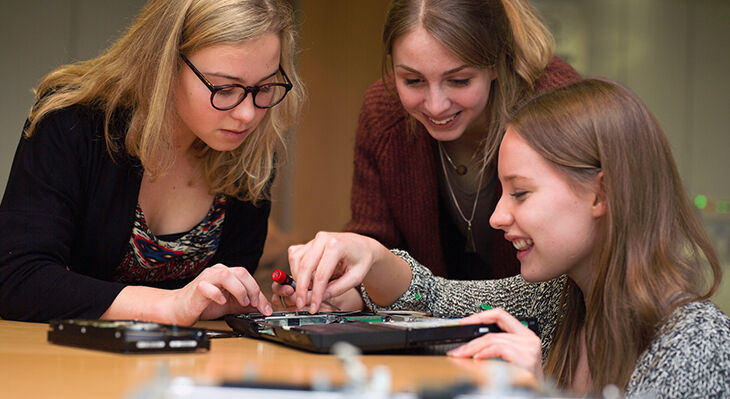How young people are guided to the world of work
Vocational orientation takes place on the level of compulsory education within the German education system. Early vocational orientation and the fostering of cross-cutting core skills help ensure a seamless transition from school to the working world.

Vocational orientation is part of the career guidance and counselling process which has two sides. On the one hand, we have the young people who are seeking to orient themselves towards their own interests, competences and objectives. The other side consists of the requirements of the world of work, to which the young people are guided. Both of these sides constantly need to be rebalanced. Vocational orientation provision supports young people in mastering this process.
With this thought in mind, in 2008 the German Federal Ministry of Education and Research (BMBF) launched the Vocational Orientation Programme (BOP) entitled "Supporting vocational orientation in inter-company vocational training centres and comparable VET centres" which was eventually adopted in June 2010.
The objective is to offer to school pupils all over Germany a vocational orientation process that will enable them to develop a realistic idea of their own abilities and interests and to gather practical experience in a variety of occupational fields.
The Vocational Orientation Programme focusses on pupils attending schools of general education. Funding is provided for an analysis of potential (Potenzialanalyse), which usually takes place during the second half of Year 7, and for workshops in Year 8. The analysis of potential enables pupils to arrive at an initial assessment of their own predispositions and competences. Following this, the two-week workshops (Werkstatttage) provide them with an opportunity to familiarise themselves with at least three occupational fields.
Funding guidelines stipulate that the measures are conducted at an inter-company training centre or at a comparable institution with experience in the provision of initial vocational education and training.
The Federal Institute for Vocational Education and Training (BIBB) is in charge of overall programme management. Institutions apply for funding to the BIBB and conclude a cooperation agreement with the participating schools for the implementation of the programme. Furthermore BIBB supports the programme by providing evaluation and academic research and technical expertise. It also monitors progress and identifies any amendments that may be required. The preventative approach adopted by the programme contributes towards the avoidance of training dropouts and assists in reducing the number of unplaced training applicants during the transitional phase.